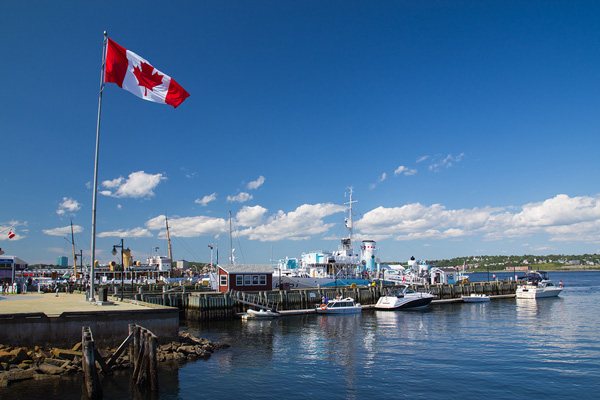Guide to Residency in Canada
Summary: Establishing residency in Canada can be challenging. Here are some helpful tips for digital nomads. retirees, and nomads.

Obtaining a residency visa in Canada is not always easy, but our Guide to Residency in Canada gives newcomers an overview of the steps involved and advice from others who have already navigated the process.
- Research Canadian Immigration Programs
- Visit the official Immigration, Refugees and Citizenship Canada (IRCC) website at www.canada.ca to understand different immigration programs such as Express Entry, Provincial Nominee Programs, Family Sponsorship, and others.
- Determine which program best suits your situation based on eligibility requirements.
- Check Eligibility
- Use the Come to Canada tool on the IRCC website to see if you are eligible for any immigration programs.
- Collect necessary documents such as passports, language test results, education assessments, job offers, and proof of funds.
- Create an Express Entry Profile (if applicable)
- Fill out the online form to create an Express Entry profile at Express Entry.
- Ensure all information is accurate and complete.
- Submit the profile and wait for an Invitation to Apply (ITA) for permanent residence.
- Apply for Permanent Residence
- Once you receive an ITA, you have 60 days to submit a complete application for permanent residence.
- Fill out the application forms and gather all required documents, such as police certificates and medical exams.
- Pay the application fees on the IRCC website.
- Submit the application online and wait for a decision.
- Prepare for Arrival in Canada
- Once your application is approved, you will receive a Confirmation of Permanent Residence (COPR) and a visa (if required).
- Plan your move to Canada, including where you will live, work, and learn about Canadian life and laws.
- Apply for a Social Insurance Number (SIN)
- Visit a Service Canada Centre or apply online at Service Canada to obtain a SIN.
- Provide required documents such as your COPR and passport.
- Your SIN is necessary for working in Canada and accessing government programs and benefits.
- Apply for a Tax Number
- Your SIN also serves as your tax number for income tax purposes.
- Ensure you have your SIN when you start employment or need to file taxes.
- Access Health Care
- Apply for a health card in the province or territory where you will reside.
- Provide necessary documents such as your COPR, passport, and proof of residence in the province.
- Each province has its own health care system, so visit the respective provincial government website for specific instructions.
- Explore Settlement Services
- Use settlement services offered by the government and various organizations to help you integrate into Canadian society.
- Services include language classes, employment assistance, and community connections.
- Find services near you through the IRCC website or local community centers.
What tips do digital nomads and expats have about residency and visas in Canada?
" You can find extensive information about immigrating to Canada on their official website. There is a program where you may be able to apply as a Quebec Skilled Worker. ," commented one expat living in Montreal, Canada.
"In order to be eligible to apply for a visa in Canada, applicants must meet certain requirements, including: having valid identity documents, providing proof of financial support, and satisfying medical and security checks. The process of applying for a visa also includes completing an online application, submitting supporting documents, and submitting biometrics for identity verification. The process for applying for residency in Canada involves completing an online application and submitting supportive documents, such as a police certificate, proof of financial support, and evidence of a valid identity. Additionally, applicants must pass medical and criminal background checks and make a language test to prove they can speak one of Canada's official languages," mentioned one member living in Canada.
About the Author
 Betsy Burlingame is one of the founders of Digital Nomad Exchange and the Founder and President of Expat Exchange. She launched Expat Exchange in 1997 as her Master's thesis project at NYU. Prior to Expat Exchange and Digital Nomad Exchange, Betsy worked at AT&T in International
and Mass Market Marketing. She graduated from Ohio Wesleyan University
with a BA in International Business and German.
Betsy Burlingame is one of the founders of Digital Nomad Exchange and the Founder and President of Expat Exchange. She launched Expat Exchange in 1997 as her Master's thesis project at NYU. Prior to Expat Exchange and Digital Nomad Exchange, Betsy worked at AT&T in International
and Mass Market Marketing. She graduated from Ohio Wesleyan University
with a BA in International Business and German.
Some of Betsy's articles include 12 Best Places to Live in Portugal, 7 Best Places to Live in Panama and 12 Things to Know Before Moving to the Dominican Republic. Betsy loves to travel and spend time with her family. Connect with Betsy on LinkedIn.

Get a quote in 2 minutes from our partner, Cigna Global Health.
Get Quote
![]() Canada Forum
Canada Forum
Talk with other digital nomads and expats in Canada on our Canada forum - meet people, get advice and help others.
![]() Contribute
Contribute
Help others in Canada by answering questions about the challenges and adventures of living in Canada.
Digital Nomads in Canada offer advice about healthcare, hospital visits, emergency rooms visits, finding a doctor and buying health insurance in Canada.
Advice for people renting and buying real estate in Canada.

 Canada
Canada

